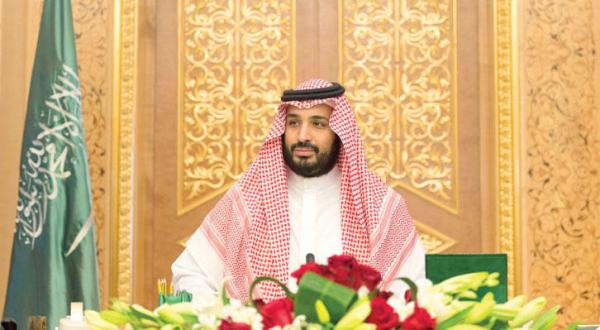Riyadh-The Second Deputy Prime Minister the Minister of Defense, Deputy Crown Prince Mohammed bin Salman, revealed that Saudi Arabia will limit the impact of subsidy cuts on its citizens within the Kingdom’s plan for the post-oil era.
The government is developing a mechanism to provide cash to low- and middle-income Saudis who rely on subsidies, Prince Mohammed told Bloomberg in an interview released on Monday.
Under the previous system, 70 percent of the subsidies benefited high income people, he said.
“We don’t want to change the life of the average Saudi,” the deputy crown prince said. “We want to exert pressure on wealthy people, those who use resources extensively.”
In a common matter, and while higher gasoline and electricity prices were implemented without affecting ordinary citizens, the new water tariff, which was imposed last month, was applied in an “unsatisfactory” way that will be rectified, the prince said.
“Honestly speaking, what happened wasn’t in accordance with the plan that we’ve approved,” Prince Mohammed said. “Now, we are working diligently on reforms within the water ministry so that things will be in accordance with the agreed plan,” he said, without providing details.
These statements come within the framework of HRH King Salman bin Abdulaziz al Saud’s vision concerning Saudi Arabia’s economic future; it urged the establishment of the Council for Economic and Development Affairs, which is responsible for developing projects that do not rely on oil in the post-oil era within the coming 20 years.
Including future cuts, the subsidy restructuring is expected to generate $30 billion a year by 2020, part of a broader plan to raise non-oil revenue by $100 billion to reduce the kingdom’s reliance on crude.
The prince’s statements reflect the Kingdom’s plan to reduce its reliance on oil, thus Saudi Arabia will announce its vision for the future in the post-oil era on April 25, the prince said.
Moreover, Saudi Arabia is aiming through its vision to develop a set of reforms, which it is working on, by activating elements having economic and vital nature.
The vision includes transforming Saudi Aramco from an oil company into energy and industrial conglomerate, as well as the future of the Public Investment Fund, which will be transformed into the world’s largest sovereign wealth fund, in addition to the National Transformation Program.
The Kingdom has been seriously heading toward reducing its reliance on oil, as a major source of income for the country by diversifying income sources through privatizing some public sectors, transferring part of the shares into PIF, increasing industrial productivity, motivating the private sector to grow and investing in finance markets while focusing on the same time on other suitable investment tools.
IPOing Aramco within the two coming years and transferring its shares to PIF will technically make investments the source of Saudi government revenue, not oil,” the prince said; emphasizing that this will allow the Saudi stock market receive one of the most leading oil companies in the world.
